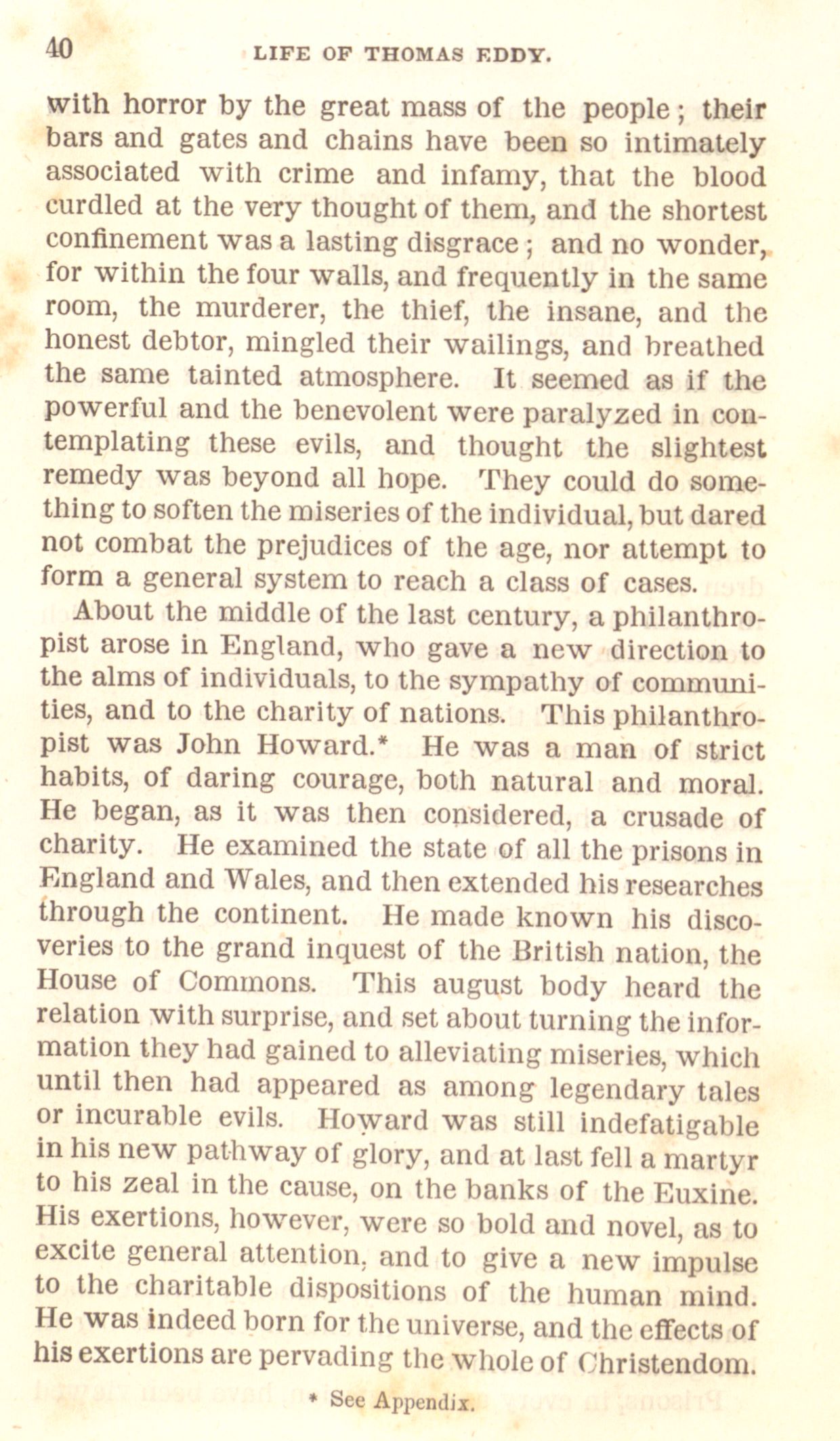with horror
by the great mass of the people; their
bars and gates and chains have been
so intimately
associated with crime and infamy, that the blood
curdled
at the very thought of them, and the shortest
confinement was a lasting
disgrace; and no wonder,
for within the four walls, and frequently in the
same
room, the murderer, the thief, the insane, and the
honest debtor,
mingled their wailings, and breathed
the same tainted atmosphere. It seemed
as if the
powerful and the benevolent were paralyzed in con-
templating
these evils, and thought the slightest
remedy was beyond all hope. They
could do some-
thing to soften the miseries of the individual, but
dared
not combat the prejudices of the age, nor attempt to
form a
general system to reach a class of cases.
About the middle of the last century, a philanthro-
pist arose in England
the alms of individuals, to the sympathy of communi-
ties, and to the charity of nations. This philanthro-
pist was John Howard
habits, of daring courage, both natural and moral.
He began, as it was then considered, a crusade of
charity. He examined the state of all the prisons in
England
through the continent. He made known his disco-
veries to the grand inquest of the British nation, the
House of Commons. This august body heard the
relation with surprise, and set about turning the infor-
mation they had gained to alleviating miseries, which
until then had appeared as among legendary tales
or incurable evils. Howard
in his new pathway of glory, and at last fell a martyr
to his zeal in the cause, on the banks of the Euxine.
His exertions, however, were so bold and novel, as to
excite general attention, and to give a new impulse
to the charitable dispositions of the human mind.
He was indeed born for the universe, and the effects of
his exertions are pervading the whole of Christendom.

